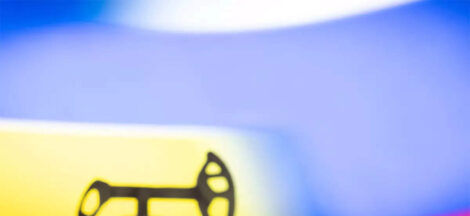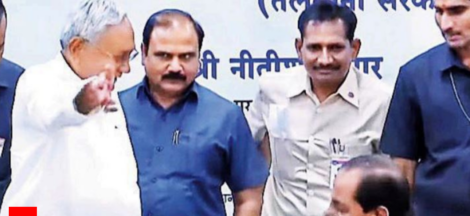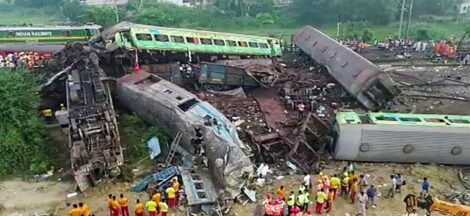By
Nantoo Banerjee
If
the world’s top ranking economies by per capita GDP and expenditure, education
level, financial inclusion and digital penetration are not keen to go cashless
in the face of resistance from their citizens, India’s bid to build a cashless
society may be described as highly impractical or even a wistful thought with
potential to lead to a nation-wide economic chaos. It is true that the latest
data on payment behaviour from China has been an eye-opener even for many
highly advanced countries. However, India is not China. The two countries don’t
share the same political and economic systems. Even then, going by the
available data, China still made payments for 37 per cent of all its purchases
in cash in 2016 while 43 per cent of spending was via money card or credit
card. Mobile payments made up 20 per
cent of all transactions. This is despite the fact that China is the world’s
largest producer-user of mobile phones. India’s current digital movement banks
heavily on mobile phones, imported mostly from China, Korea and Taiwan.
The
movement for cashless society is being resisted even in highly advanced
democratic countries by per capita GDP such as Switzerland, Germany, France,
Sweden and the USA. Interestingly, in Switzerland, the world’s second richest
economy by per capita GDP and a global financial capital, the Swiss are less
progressive when it comes to their payment behaviour. According to official
estimates, around three quarters of payments were made in cash in 2016. Only
0.2 per cent of all transactions in 2016 were executed via smartphone. Cash remains the most popular payment method
in Switzerland and it’s not going to change anytime too soon. It is true that
the backdrop in China and Switzerland is very different. For instance, in China
the majority of the population do not have access to banking services.
The
common man is concerned as cashless economy is more prone to fraud.
Unauthorised electronic payments involving prepaid payment instruments (PPIs)
are rising in India. Customers, who carry out transactions on mobile wallets
such as Paytm, PhonePe, MobiKwik, among others, may lose their money in case of
a cyber attack or negligence of the platform on which the transaction is taking
place. To many, cash in hand for transaction is more likeable than mobile phones
or credit or debit cards in hand. Consumers tend to spend more in invisible
transactions. Cash transaction is simple. Cash is visible and easily divisible,
offering a stable and reliable purchasing power. Cash payments are normally
without a transaction cost. They are also geographically restricted to a
currency zone. The relevance of cash as a store of value remains high and will
increase further in times of negative interest rates, corrupt and authoritarian
governments, ailing banks and financial systems, as well as criminal
machinations.
Most
economists across the world feel that a cashless society even in a small
country such as Switzerland, having a population of only 84.2 lakhs and
boasting a per capita GDP of USD 80,189, remains some distance away. Despite
the fact that 99 per cent of Swiss adults are literate, the country loves to
deal in cash. Similarly, the people in Sweden, easily the world’s best governed
country with strong societal values, having a per capita GDP of US$57,000 and
adult literacy rate of 99 per cent, are generally happy to deal in cash. The
citizens go for digital transaction at their own will and convenience and not
because it is thrust upon them by the Swedish government.
Considering
the global backdrop, it is difficult to appreciate and justify the urgent need
for a country like India, having a population of over 1.3 billion and per
capita GDP of only USD 1,939.61 in 2017, to go cashless. The drive for digital
transaction towards a cashless society in India does not even take into
consideration that nearly 26 per cent of its adult population or over 150
million people are simply illiterate. The ongoing BharatNet project intended to
offer internet connection to some 2.5 lakh village Panchayats may be a good
idea on paper, but it does not guarantee that the wi-fi system will dependably
operate in the absence of a reliable infrastructure, including power supply.
The champions of Digital India may not be aware that even in the last five
years, Indian Railways, boasting the world’s largest rail network, failed to
ensure a reliable wi-fi system for passengers in its most prestigious Rajdhani
Express trains.
In
the absence of appreciation for societal values in India, including standards
of education, guaranteed employment and income, quality of life, the rush for
cashless society would appear to be unwarranted and uncalled for. The success
of cashless society depends on the level of individual savings in savings or
current bank accounts and mobile wallets and on the efficient function of
digital infrastructure. In a country where over 70 per cent of the working
people are low-income, part-time employees and daily wage earners, cash remains
as the most desirable and easy route for money transactions.
Ideally,
a society should decide the forms of financial transactions on the basis of
their utility and convenience and not by a government diktat. A cashless
society is subject to extreme legal restrictions on general cash acceptance.
For a government, cashless society means a huge saving on cash production and
better tax management, containing unaccounted income and black money
circulation. However, under any democratic system, the choice for modes of
financial transactions should be better left with individuals. A government
would do well by indirectly moulding the individual choice by meeting its
social obligations such as imparting education to its citizens, creating job
opportunities and steady income and improving living standards. India needs a
strong government intervention to improve the quality of life of its people,
first. A less-cash society will automatically follow.
(IPA Service)
The post Trying To Make India A Cashless Society May Lead To Chaos appeared first on Newspack by India Press Agency.


